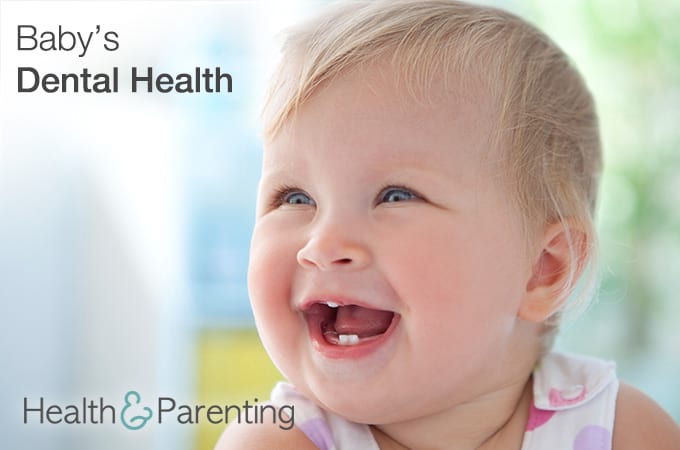Your baby may not even have any teeth yet, but it’s not too early to start her on the path to good dental health. Although those first teeth are only temporary, it’s still important to take good care of them. Decayed baby teeth can interfere with speech development and can cause permanent teeth to come in crooked.
One of the first things you can do to set the stage for healthy teeth is cleaning your baby’s gums. It might be surprising, but dentists recommend wiping your baby’s gums even before her first tooth comes in. Everyone has bacteria in their mouth, even your sweet baby. Bacteria may not harm your baby’s teeth if they have not cut through the gums yet. But it’s best to get your little one used to having her mouth cleaned.
At this point, you don’t need to use toothpaste. Just take a clean, wet washcloth or a piece of gauze and wipe your baby’s gums during bath time. Using this technique, you’ll wipe away bacteria and also stimulate her gums.
Once her first little tooth emerges, it’s time to start brushing your baby’s teeth. Choose a small, soft-bristled toothbrush. Use a circular motion when brushing, and be sure to be very gentle. Ideally, you should try to brush your baby’s teeth twice a day.
Dentists have different opinions on whether you should use toothpaste or not with babies, so ask your dentist or pediatrician. Your baby probably won’t get the hang of spitting toothpaste out right away, and you don’t want her to swallow too much. So if you do use toothpaste, stick to a tiny dab about the size of a grain of rice.
As your baby gets older, you can teach him to hold his toothbrush and try to brush his teeth. Keep in mind, you’ll probably have to do the brunt of the work until you child is five or six years old.
Most experts recommend your baby has his first dental checkup around his first birthday. Although your baby may only have a few teeth, your dentist can provide information and advice regarding tooth care, thumb sucking, pacifier use and teething.
Part of good dental care is also preventing tooth decay. Even young children can develop cavities. To decrease the chances of your little one developing a cavity, avoid putting your baby to bed with a bottle. If your baby falls asleep with a bottle, the milk can pool in her mouth, and the sugar in the milk can lead to tooth decay.
Written by MaryAnn DePietro @writerlady34
This information is not intended to replace the advice of a trained medical doctor. Health & Parenting Ltd disclaims any liability for the decisions you make based on this information, which is provided to you on a general information basis only and not as a substitute for personalized medical advice. All contents copyright © Health & Parenting Ltd 2016. All rights reserved.










